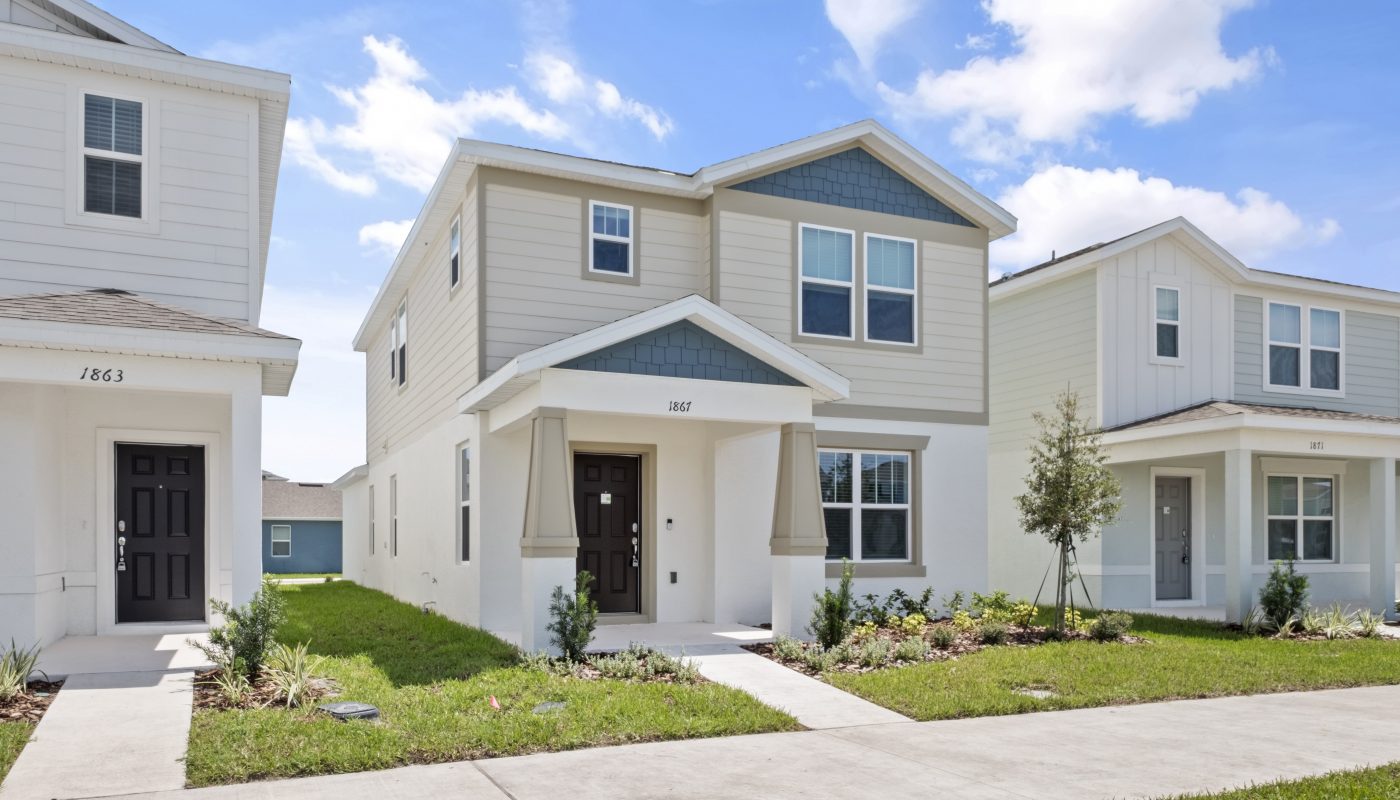Stepping into the rental market for the first time is both exciting and challenging. Many first-time renters feel overwhelmed by the unfamiliar process. It is important to start with a clear plan and realistic expectations. Renting a home is not like buying one. Instead, it requires an understanding of your financial limits and what is required for a smooth transition. In today’s ever-changing housing market, renting offers flexibility and an opportunity to learn about property management without the long-term responsibilities of homeownership.
You need to set a solid foundation by assessing your budget and understanding your financial situation. Establishing what you can truly afford ensures you do not stretch your finances too thin. Creating a detailed rental budget covers not only rent but also utilities, deposits, and miscellaneous expenses. In addition, developing this financial plan enables you to allocate funds toward moving costs, furnishing your new home, and saving for future needs. Clear financial planning gives you confidence during the rental search and enables you to negotiate better terms.
Apart from financial preparation, learning about local rental markets is equally vital. Researching the neighborhood helps you discover areas that fit your lifestyle and budget. A well-informed renter is better equipped to find a property that matches their needs in terms of location, amenities, and overall environment. Understanding legal documents is another key component. Taking time to read and understand your lease helps prevent misunderstandings later on. Finally, establishing a good relationship with your landlord and being proactive about maintenance issues sets the stage for a hassle-free rental experience.
1.Create a Realistic Budget and Know Your Financial Limits

When starting your journey as a first-time renter, it is critical to create a realistic budget that reflects your full financial picture. Begin by calculating your monthly income carefully. Include all sources of income such as salary, freelance work, and any additional contributions. Next, list all monthly expenses including utilities, food, transportation, and personal commitments. Once these figures are clear, subtract your regular expenses from your income to see how much you can reliably allocate for rent and related costs. Experts often recommend spending no more than 30% of your monthly income on housing, a rule of thumb that helps you maintain financial stability.
Establishing a detailed budget also means anticipating extra costs that are not directly labeled as rent. These include security deposits, application fees, renter’s insurance, parking fees, and utility bills. Some rentals may require additional upfront fees that are not apparent initially. Planning for these expenses gives you a buffer and prevents financial surprises later. A well-organized budget can be maintained with budgeting apps or by using a spreadsheet to track income and expenditures, which simplifies the process and keeps you accountable.
By creating a comprehensive budget, you empower yourself to search for rental properties with confidence. Clear financial expectations guide your rental search and help you avoid spending beyond your means. This financial discipline is key to building a strong foundation for your rental experience. A realistic budget not only secures your finances but also increases your overall peace of mind, making the transition into your new rental much smoother. Ultimately, this planning step is a wise investment in your future as a renter and lays the groundwork for a positive and stress-free living experience.
2.Research Your Rental Market Thoroughly
Thorough research of the local rental market is one of the most important steps for first-time renters. When you research your target area, you gain valuable insight into what is available, what amenities are offered, and how the neighborhood fits your lifestyle and budget. Start by browsing multiple online platforms that list rental properties. Compare prices, sizes, and locations to form a picture of the current market conditions. Use real estate websites and rental apps to filter options by price, location, and features. This data allows you to understand what the average rent is in different neighborhoods.
In addition to online research, gathering local intelligence is essential. Speak to current tenants, visit neighborhoods in person, and consult local property management companies. Direct observations and interactions can reveal the true character of an area, including its safety, noise levels, and convenience to stores, public transportation, and schools. Keep a record of your observations by creating comparison charts or notes. Documenting details such as average rent, available amenities, and neighborhood services gives you a clearer idea of where best to focus your search.
It is also crucial to read reviews and ratings of landlords and property management companies. Online platforms often feature testimonials from current or past tenants. These reviews can provide insights into the reliability, responsiveness, and fairness of the landlord. Poor management or hidden fees may detract from the overall living experience, so taking the time to research these aspects can save you from future headaches. Furthermore, research local tenant rights and regulations. Many communities have specific rules that protect renters, and understanding these laws ensures that you are fully informed about your rights and responsibilities.
3.Understand Lease Agreements and Your Rights as a Tenant
Before you sign any lease agreement, it is absolutely essential to read and understand every part of the document. This legal contract outlines your responsibilities and the landlord’s obligations over the term of the lease. For first-time renters, the lease can be intimidating because it is full of legal language and technical terms. However, taking time to break it down into understandable parts protects you from unexpected surprises. Familiarize yourself with key terms such as the rental amount, the payment due date, late fee policies, and the length of the lease. Pay attention to clauses regarding maintenance responsibilities, utility payments, and subletting policies. Ask questions and request clarification on anything that seems unclear.
Understanding your rights as a tenant is another crucial aspect of lease agreements. Tenant rights vary by region, and knowing your legal protections is important. Research local laws on security deposits, notice requirements for termination, repair obligations, and fair housing regulations. Resources such as government websites or local tenants’ rights organizations can provide comprehensive guides. Being aware of these laws ensures that you are not taken advantage of and that you can stand up for your rights if necessary. In some instances, tenants may also negotiate specific lease terms before signing.
When you know your rights, you can confidently communicate with your landlord. Documenting all correspondence whether by email or text is a smart step that offers protection later. Make sure you also understand policies related to lease renewal, early termination penalties, and any maintenance issues that fall under your responsibility. This clarity helps prevent misunderstandings later and establishes a basis for a mutually respectful relationship with your landlord. Overall, developing a detailed understanding of lease agreements and tenant rights not only safeguards your interests but also provides peace of mind.
4.Prepare for the Moving Process and Settle In Smoothly

A smooth moving process is essential for first-time renters who are embarking on a new chapter. The excitement of entering a new space can be quickly overshadowed by the chaos of moving day if you are not well-prepared. Start by creating an extensive moving checklist that covers every detail from packing to setting up utilities. Write down tasks such as notifying your current landlord, confirming the move-out date, arranging for transportation, and scheduling professional movers or renting a moving truck. Planning ahead reduces stress and ensures no critical steps are overlooked.
Additionally, research and understand your new neighborhood before moving in. Visit the area at different times of the day to assess its vibe, noise levels, safety, and proximity to essential services. Make note of nearby grocery stores, schools, and public transportation options. This research not only helps you choose the right rental property but also sets the stage for a smoother settling-in process. When you arrive at your new home, having a detailed plan for unpacking can save time and energy. Allocate specific areas for each type of item so that essential belongings are easy to find.
By carefully organizing the moving process, you minimize the chaos and create a positive experience from the start. A well-planned move reduces stress and sets you up for a smooth transition into your new rental. Prepare in advance by gathering supplies like boxes, tape, markers, and protective materials for fragile items. Enlisting the help of friends or family can also make the process more enjoyable and less burdensome. Ultimately, a detailed moving plan ensures that all tasks are completed on time, leading to a successful and stress-free move.
5.Communicate Effectively with Your Landlord and Manage Maintenance
Effective communication with your landlord is crucial to maintaining a positive rental experience, especially for first-time renters. Establishing clear channels of communication at the very beginning creates an atmosphere of respect and professionalism. When you sign the lease, take the time to understand the landlord’s preferred methods of contact. Whether it is email, phone calls, or a property management system, make sure you use that channel consistently. Clear and prompt communication regarding any issues prevents small problems from escalating into costly disputes later.
Understanding who is responsible for repairs is another key aspect of effective communication. Most leases specify that major repairs are the landlord’s responsibility, while minor issues may fall on you as the tenant. Clarify any ambiguous points before moving in. If you encounter problems, report them immediately rather than waiting. A quick response can often prevent further damage and shows the landlord that you care for the property. When you communicate, be polite yet firm about your needs. For instance, if a repair has not been addressed in a reasonable time, send a follow-up message that cites the original request and any relevant lease clauses. This level of professionalism helps foster a good relationship with your landlord and ensures that your living environment remains safe and comfortable.
Furthermore, open communication is beneficial during lease negotiations or renewals. Establishing mutual respect early on can lead to more flexible lease terms or opportunities for mutually beneficial updates to the property. Regularly updating your records of maintenance requests and keeping receipts for any repairs you pay for yourself can support your case if an issue arises later. Effective communication and proactive maintenance management help create a calm and predictable rental experience. This approach also builds trust and ensures that your rental home stays in good condition.
Conclusion
In conclusion, starting your journey as a first-time renter can be both rewarding and challenging if you prepare thoroughly. Creating a realistic budget and knowing your financial limits provide a firm foundation for any successful rental experience. Through careful planning and comprehensive budgeting, you ensure that you do not overspend and are well-equipped to handle additional costs such as utilities, deposits, and moving expenses. Moreover, understanding your financial constraints not only helps during the rental search but also enables you to manage your living expenses effectively over time.
Thorough research into the local rental market is equally important. By examining online listings, visiting neighborhoods, and consulting local experts, you gain valuable insight into what each area offers. This research allows you to make informed decisions based on average rents, community amenities, and local conditions that suit your lifestyle. Furthermore, being well-informed leads to better negotiations and prevents you from overpaying for a rental property.
Finally, communicating effectively with your landlord and managing maintenance issues builds a strong, respectful relationship. Prompt reporting of repairs and clear documentation can prevent small issues from escalating. This professional approach not only fosters trust but also ensures that your living conditions remain safe and in good order. Consistent, respectful communication is essential for maintaining both your rights and the integrity of the property.
Overall, these five essential tips serve as a roadmap for first-time renters. They empower you to navigate financial planning, market research, legal understanding, moving logistics, and communication with confidence. By embracing these strategies, you set yourself up for a successful and stress-free rental experience that is both enjoyable and financially sound. With proper planning and proactive management, your first rental journey can pave the way for greater stability and future opportunities in the housing market.



